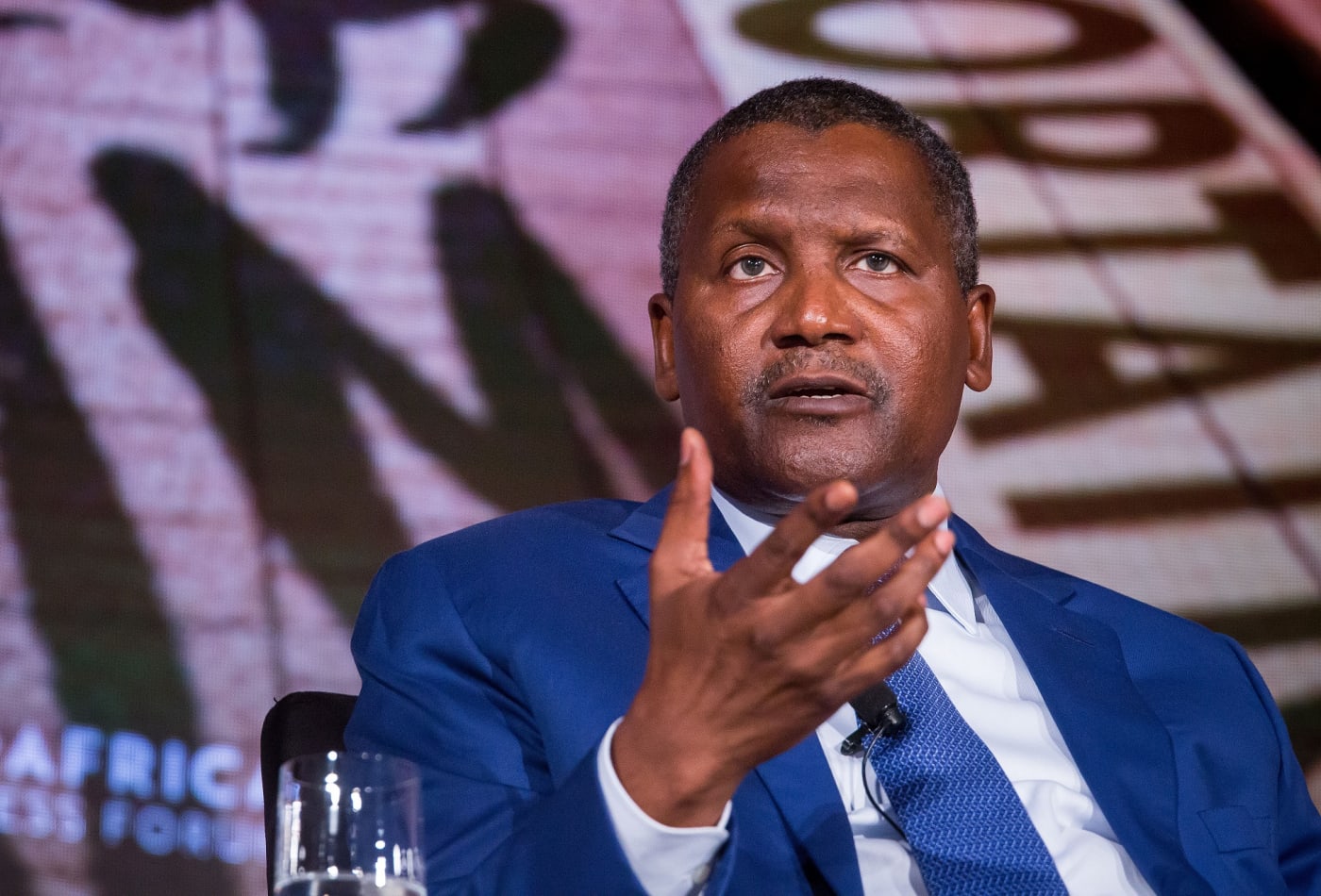LAGOS, Nigeria – Aliko Dangote, the chairman of the Dangote Group, expressed confidence that the recent reduction in diesel costs would lead to a downturn in the nation’s inflation rate.
Speaking to journalists during his Eid-el-Fitr visit to President Bola Tinubu’s residence in Lagos, Dangote highlighted the pivotal role of low diesel prices in immediately addressing inflationary pressures.
The Dangote Refinery, having recently commenced the supply of diesel and aviation fuel to the local market, has been at the forefront of this economic shift.
By retailing diesel at N1,200 per litre, the refinery has undercut the prevailing market price, which had hovered between N1,650 and N1,700.
This strategic pricing, Dangote believes, is a direct response to the challenges posed by the naira’s devaluation and the resultant high diesel costs burdening businesses across the country.
“There’s quite a lot of improvement because if you look at it, one of the major issues that we’ve had was the naira devaluation that has gone very aggressively up to about N1,900. But right now we’re back to almost N1,250, N1,300, which is a good reprieve,” Dangote explained.
With Nigeria’s inflation rate hitting a new high of 31.70% in February 2024, up from 29.90% in January, according to the National Bureau of Statistics, the initiative to slash diesel prices is seen as a timely intervention.
Dangote expressed optimism that the next set of inflation figures would reflect a significant improvement, courtesy of the reduced diesel prices.
The move has also spurred calls from oil marketers for further reductions in diesel prices.
Independent Marketers Calls for Lower Diesel Prices from Dangote Refinery
Citing the refinery’s advantageous location and the strengthening naira, the Independent Petroleum Marketers Association of Nigeria (IPMAN) has proposed a new price bracket of N700 to N850 per litre for diesel retailed by Dangote Petroleum Refinery.
Chief Chinedu Ukadike, the National Public Relations Officer for IPMAN, shared insights on Monday, April 8, 2024, concerning the refinery’s impact on the domestic fuel market.
Ukadike lauded the refinery’s operational commencement, a development long-supported by IPMAN as a means to reduce Nigeria’s reliance on imported diesel, known as AGO.
The association had hoped that an indigenous refinery could mitigate the logistical costs tied to diesel importation — including clearing and transportation — which significantly drive up fuel prices.
“During the construction of the Dangote refinery, we supported and welcomed it. Also, it was our prayers that an indigenous refinery be opened so that it will limit the expenses of logistics in terms of importation, clearing, and other activities associated with bringing products into the country,” Ukadike expressed.
The expectation was that domestic production would lead to lower retail prices for diesel, considering the reduced logistical challenges.
However, despite the refinery’s capacity to influence the market positively, IPMAN has raised concerns over the pricing strategy being adopted.
The current retail price of Dangote diesel stands at a level comparable to imported diesel, despite the prevailing foreign exchange rates, which, according to Ukadike, should ideally lower the cost of domestically produced diesel.
“The dollar is currently about N1,270 to N1,290 and it is coming down. So if the dollar is a determinant factor in terms of the importation of petroleum products and diesel is sold by those companies that imported at N1,300/$, I believe that Dangote refinery should not measure the price of its diesel with the parameter of the forex,” Ukadike stated.
IPMAN’s stance is that the exchange rate should not serve as the primary benchmark for the refinery’s diesel pricing, especially given the refinery’s strategic position to reduce importation costs and enhance Nigeria’s energy security.







